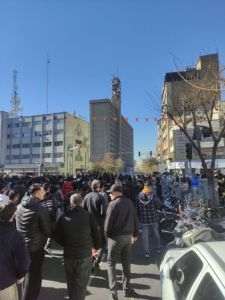
Approximately 15% of the installed solar capacity in Germany, equivalent to 10 GW, appears to be affected by the premature wear of solar panels and a high rate of failures recorded at the level of inverters.
Replacement costs are estimated at around 2 billion euros, given that only a small portion of cases of premature "aging" are detected, according to a recent article in the specialized magazine PV Magazine (pv-magazine.com).
The publication, which tracks trends and developments in the photovoltaic sector globally and regionally since its founding in 2008, emphasizes that "it has long been known that three-layer polyamide protective films, widely used from 2010 to 2013, can become brittle and break." This phenomenon occurs for both roof-mounted systems and ground-mounted systems.
Moreover, "modules from newer generations and other types of films exhibit similar behavior," according to statements from the CEO of HaWe Engineering GmbH, which specializes in testing the energy efficiency of photovoltaic systems.
The accelerated degradation of solar panels, which should operate for at least 20 years, as publicly promised to attract "prosumers", also poses significant risks of electrocution or fire, especially in high humidity conditions.
PV Magazine presented a specific case of a "prosumer" in Germany, who believed that installing a photovoltaic system would ensure a peaceful retirement.
Unfortunately for Holger Schultheiss, inspecting the solar panels he installed 11 years ago revealed numerous cracks and other defects in his 200 kW plant. In addition to the high repair costs, the German prosumer faces an even bigger issue: he cannot find specialized installers, as all the efforts of central and regional authorities are directed towards the installation of new solar capacities.
"I bought the solar plant as a retirement investment," Schultheiss said. Profit only came after ten years, and now the German who believed in the government's promises must accept the additional expenses for replacing the affected modules.
And installation costs are rising due to the accelerated increase in production costs for solar panels, even though official promises indicated that their installation would become cheaper.
Several companies and research institutes in Germany are now collaborating to determine the best methods for evaluating and addressing the issues, given that "the insulation of the systems shows degradation that intensifies after each winter."
For smaller-sized systems, such as those installed on rooftops, there are additional risks, such as "accelerated degradation due to higher temperatures, even if exposure to ultraviolet radiation is reduced."
In other words, the official forecasts regarding solar energy production in Germany seem to be entirely unrealistic, both in terms of costs and in terms of the ability to check the structural integrity and efficiency of solar plants.
And that's not all. The cables used in solar installations were often inadequately insulated, and observing the extremely fine cracks between photovoltaic cells is very challenging. Under these conditions, infiltrated water evaporates very slowly.
Another problem is the validity of the warranties offered by manufacturers and companies that install solar plants. If they are still present on the market, multiple expensive expert assessments are needed to get repair or replacement requests for degraded solar panels approved.
"In the case of certain manufacturers, not a single warranty case resolved successfully has come to light," a lawyer for PV Magazine stated because "the warranty terms are designed in such a way that it's practically impossible for an operator to make a claim."
It must be emphasized, once again, that we're talking about Germany, the benchmark for "justice" and "rights" of all kinds in the European Union, and the country where the "green transition" is a state religion, in the name of which all individual citizens' rights are blatantly violated.
When will EU taxpayers realize that the path to cold and darkness is shorter than they thought?

















































